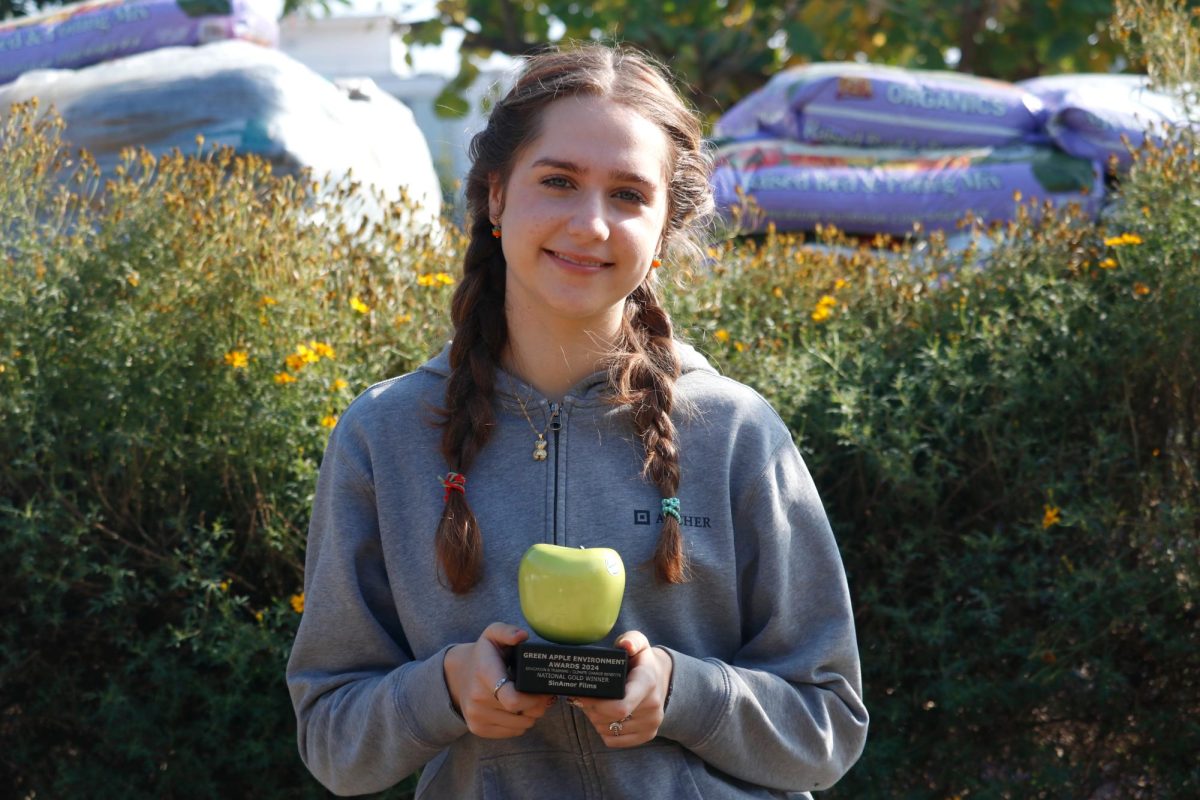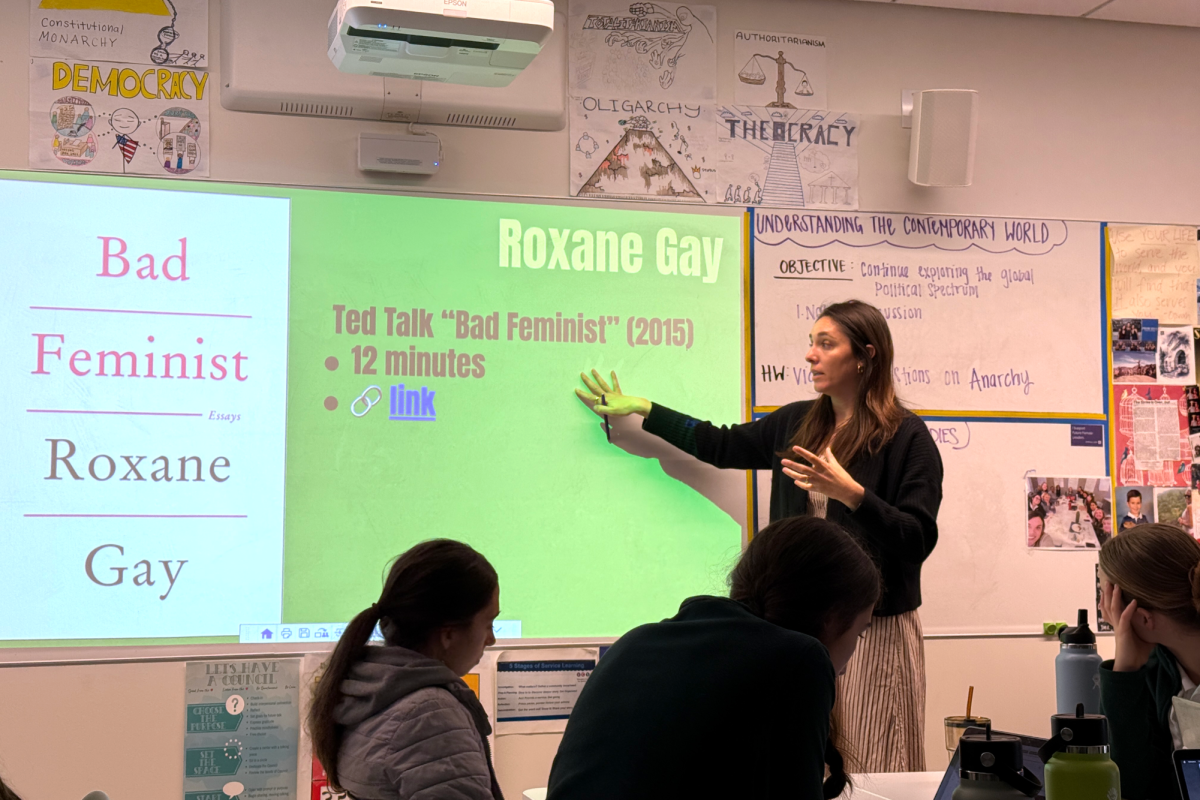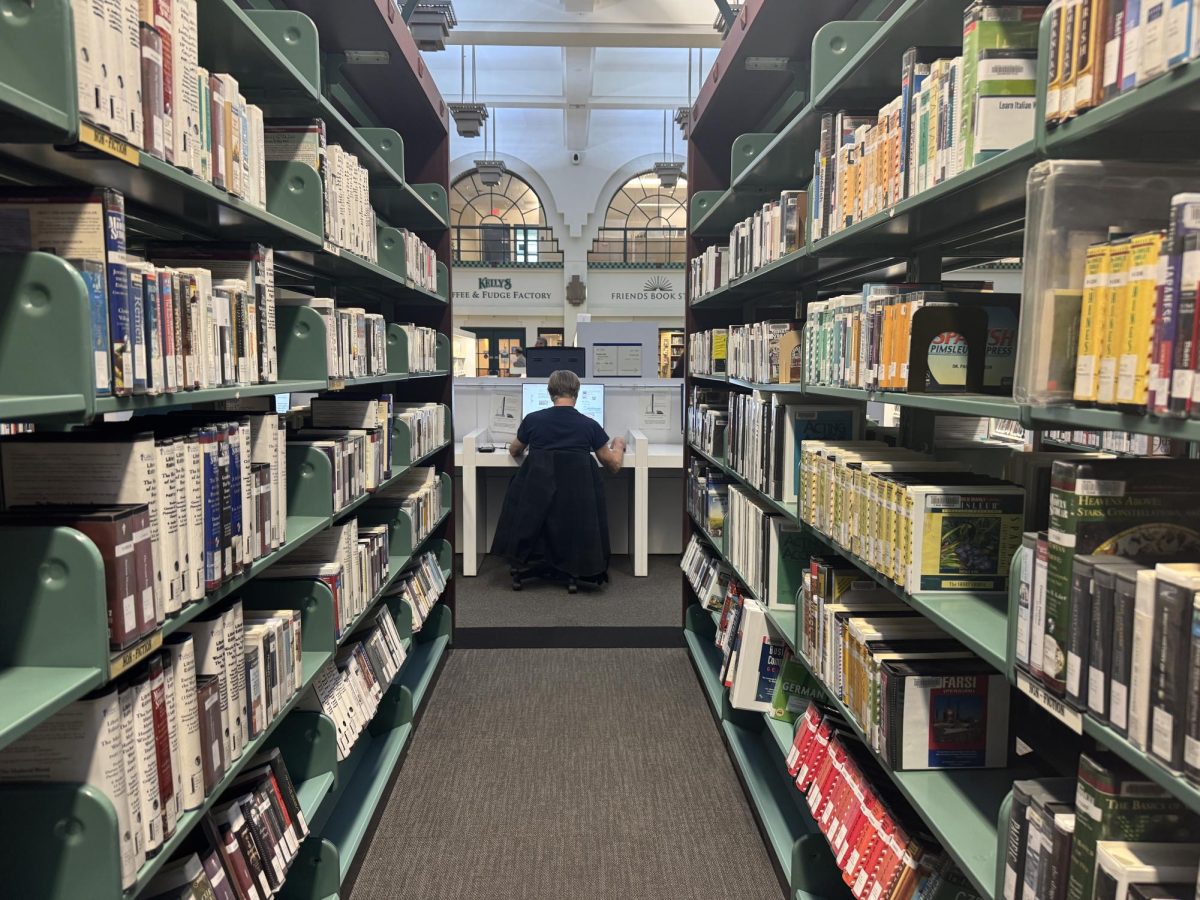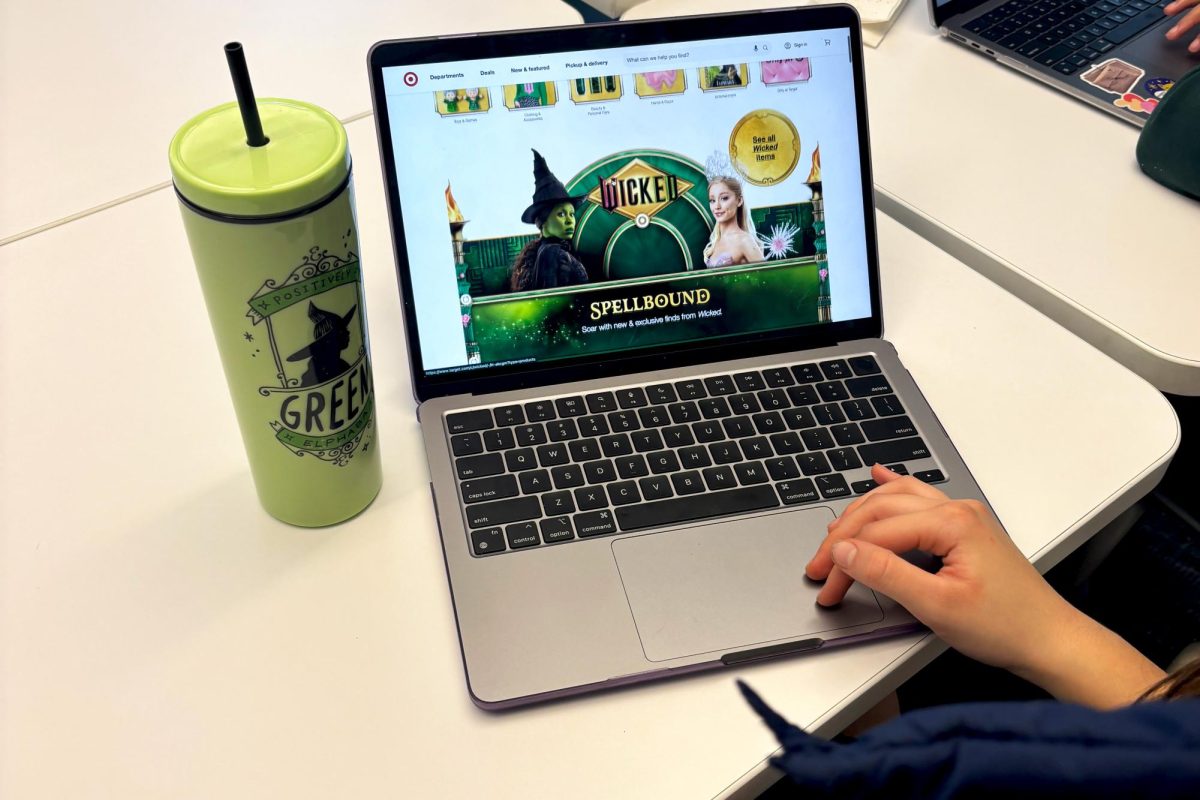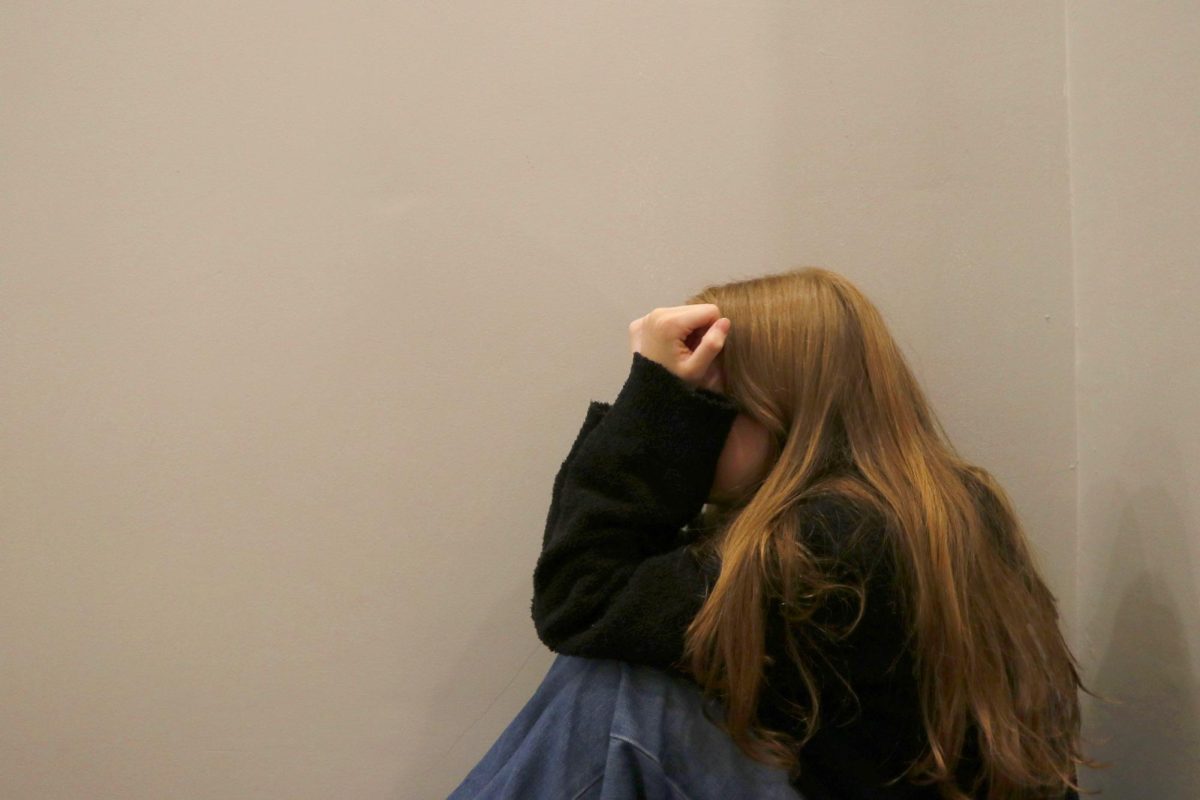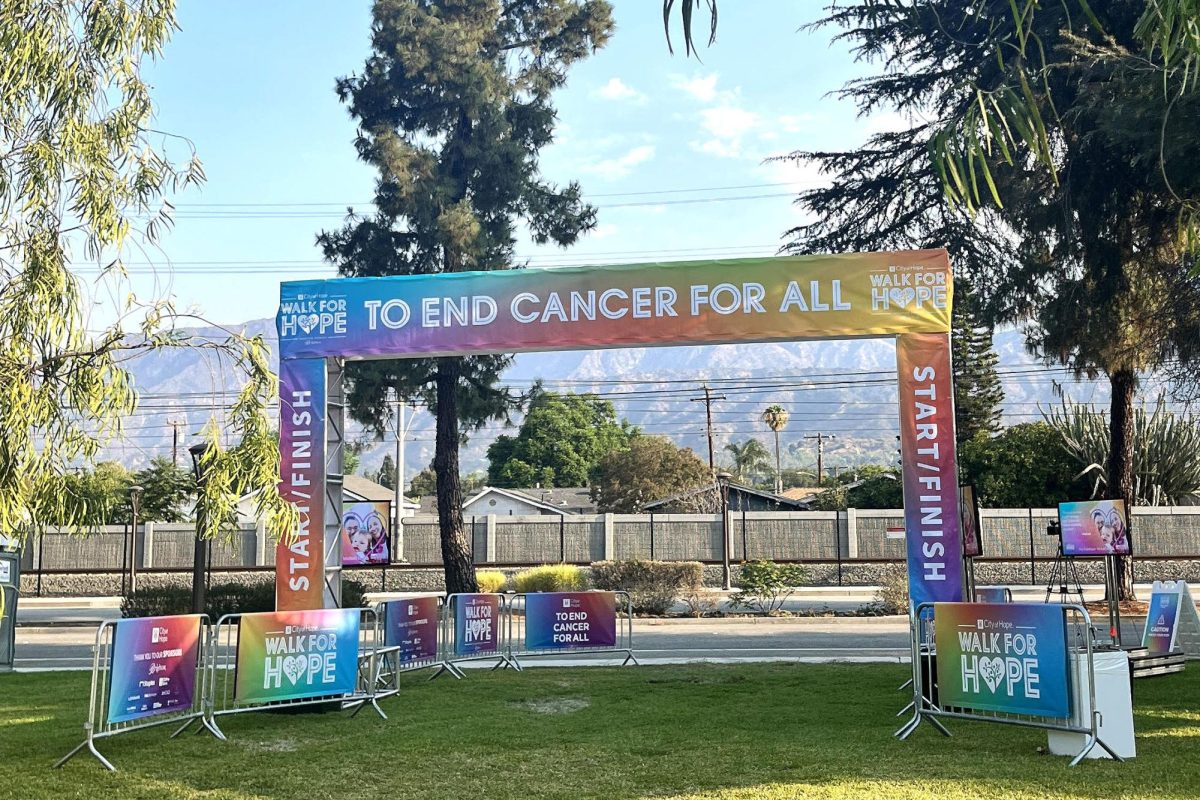New names, new faces: Meet some of Archer’s new faculty
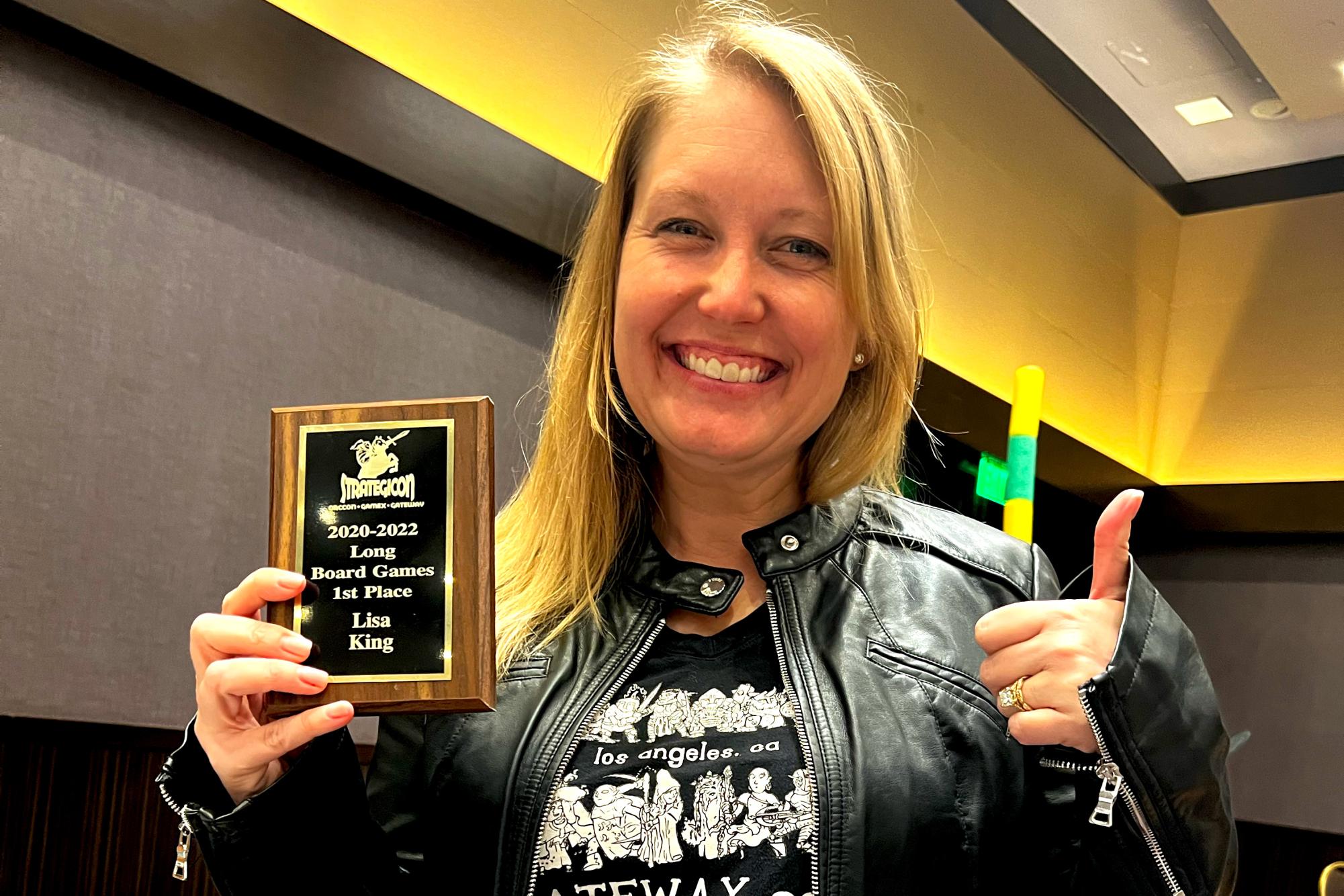
With over 15 years of educational experience, Lisa King is the new math and computer science department chair. King said she is committed to providing quality education and hopes to help her students find a passion for math and build interpersonal connections with them.
“Teaching is almost a political act, in the way that it should empower those in the educational community to change the world,” King said. “Often you see in coed mathematics classrooms that the girls sort of step back, and there’s a predominantly male voice, and that has nothing to do with ability level. Coming here, it was really powerful to see classrooms of all female mathematicians.”
Aside from math, one of King’s biggest passions is playing board games. To share her love and knowledge of these games with middle schoolers, she recently organized a new FLX Block class, where students learn and play a variety of board games.
“Something I am very passionate about bringing — it has nothing to do with math — but I am teaching a FLX period on board games,” King said. “We’re going to learn a new board game each month. We’re going to start with Catan, which some students know.”
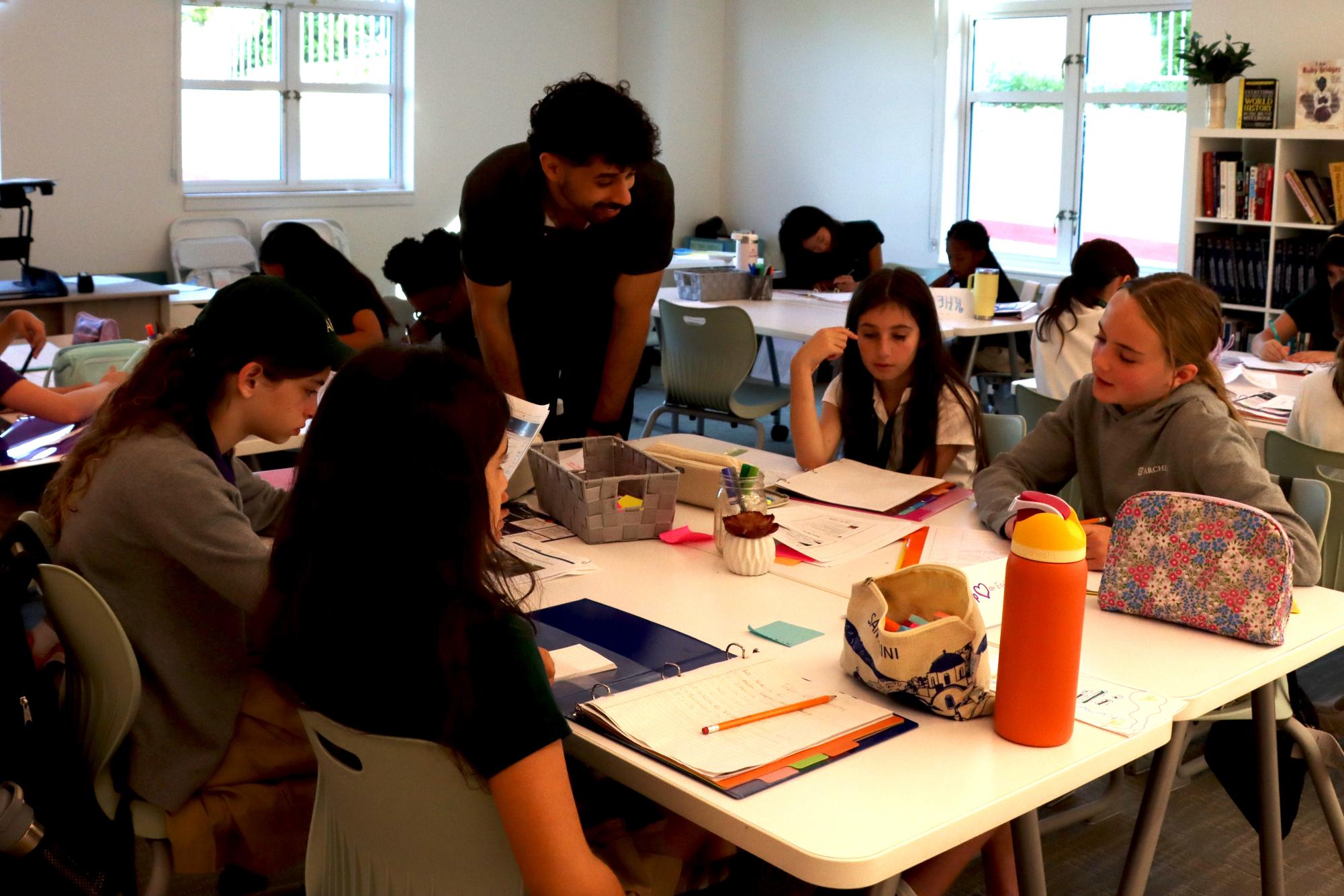
Self-proclaimed nerd and fan of comic books and science fiction, Aidyn Kulick is an eighth grade history teacher, sixth grade media literacy teacher and Archer’s speech and debate team coach. Kulick said he has always been passionate about history and known teaching is something he enjoys.
“I enjoy the a-ha moments: I love seeing the growth of students and what they go through,” Kulick said. “Especially in middle school, what they’re willing to overcome and their perseverance.”
Kulick said he noticed, in middle school, students’ worldviews expand, and they begin to think in more creative and abstract ways.
“Their ability to change their minds; their ability to really engage in debates; their ability to roll with the punches. There is lots of perseverance in the middle school,” Kulick said. “[They are] really comfortable being themselves [and] comfortable going through those awkward stages. I wish people, in general, were a lot more like that.”
One moment from the start of the year that stuck out to Kulick was during a media literacy class on InfoZones, where sixth graders learned about the various types of media. He said he saw the students engage with the material on an intrinsic level.

April Nishinaka is an 11th grade math teachers and the Advanced Study Physics teacher. Teaching at Archer is Nishinaka’s first experience working at an all-girls school.
“I was drawn to Archer, one, because it’s an all-girls school. I’ve never worked in this environment before, but the research says that it’s really good,” Nishinaka said. “I was interested to be a part of that and try it out.”
Nishinaka majored in physics in college. Due to the lack of female representation in STEM fields, Nishinaka said she hopes to inspire the future generation of female students to pursue careers in STEM.
“Most of my classmates were men, and not that they looked down on us in any way, but I just felt that imbalance could be challenging,” Nishinaka said. “I hope to inspire young women that you can do anything. Just because it’s a typically male-dominated space doesn’t mean that you can’t also hold space, be important and be of value.”
Nishinaka said she is happy to be a part of the Archer community and loves the atmosphere of campus. She said she enjoys seeing the sense of camaraderie between the faculty and students.
“Orientation day [and] meeting my mentorship, also really solidified, like, ‘Yeah, this is a good place,'” Nishinaka said. “I’m just so happy to be here and be a part of this community, and I’ve been enjoying getting to know the other new faculty.”
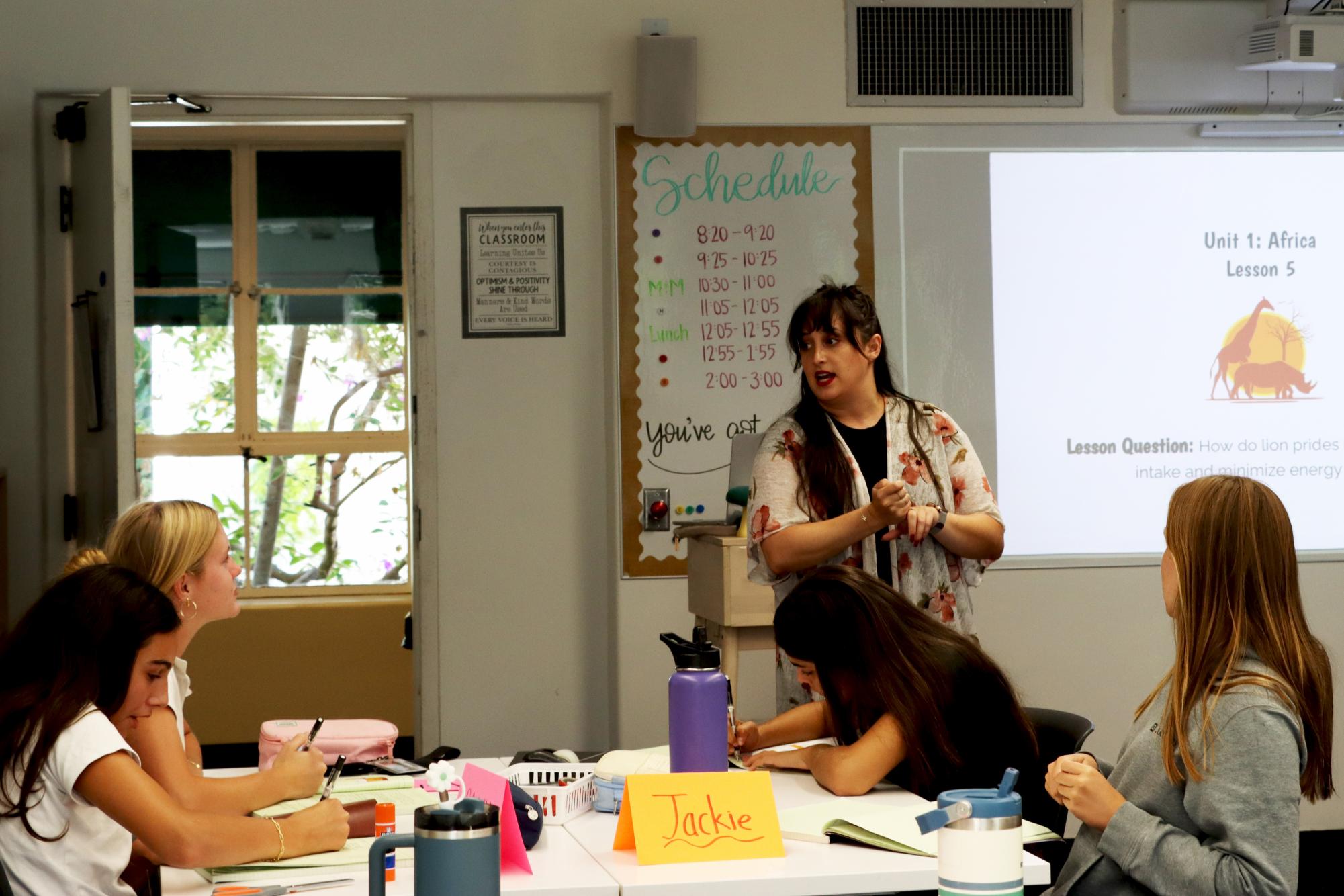
Kristen Riggs’ love for science stemmed from spending time in her mom’s science classroom. Riggs earned her bachelor’s degree in zoology, and during her undergraduate years, she worked as a zookeeper. This year, Riggs started working at Archer as a biology teacher and teaches ninth, 11th and 12th grade.
Riggs worked at Crespi Carmelite for eight years. In her career, she has only worked in single-sex education.
“I really enjoyed working in single-sex education. I find a lot of benefit and value in that… I was fortunate that [Crespi] allowed me to build a zoology curriculum,” Riggs said. “But I wanted to have a change of pace, and I was really excited to see that there was a job position that was open here.”
Riggs said her passion for zoology is evident in her teaching, and she enjoys incorporating her knowledge on animals into the Archer biology curriculum.
“I’m hoping that seeing how passionate I am about [biology] ignites that inquisitive nature and curiosity in students,” Riggs said. “Hopefully, one day, they will continue studying the sciences and loving environmental stewardship.”
Riggs said she grew up backpacking with her family, which has now become an integral part of her life. At Crespi, she ran an environmental club and took her students on backpacking trips.
“There are ways to do backpacking that is the most relaxing thing in the world,” Riggs said. “Yes, it’s challenging, but the feeling of accomplishment I get at the end of every day. [I am] sitting next to an Alpine Lake in the Sierras, [and] it’s just me and my dog cooking dinner, overlooking the sun setting, it is the most amazing thing for me ever.”
Ever since she was young, Riggs has loved backpacking and said she is excited to participate in Archer’s annual Arrow Week trip.
“[Arrow Week] is a part of the mission and what makes this school special,” Riggs said. “I would love to bring my own way of making any of the students here excited to backpack, hike and see the outdoors.”
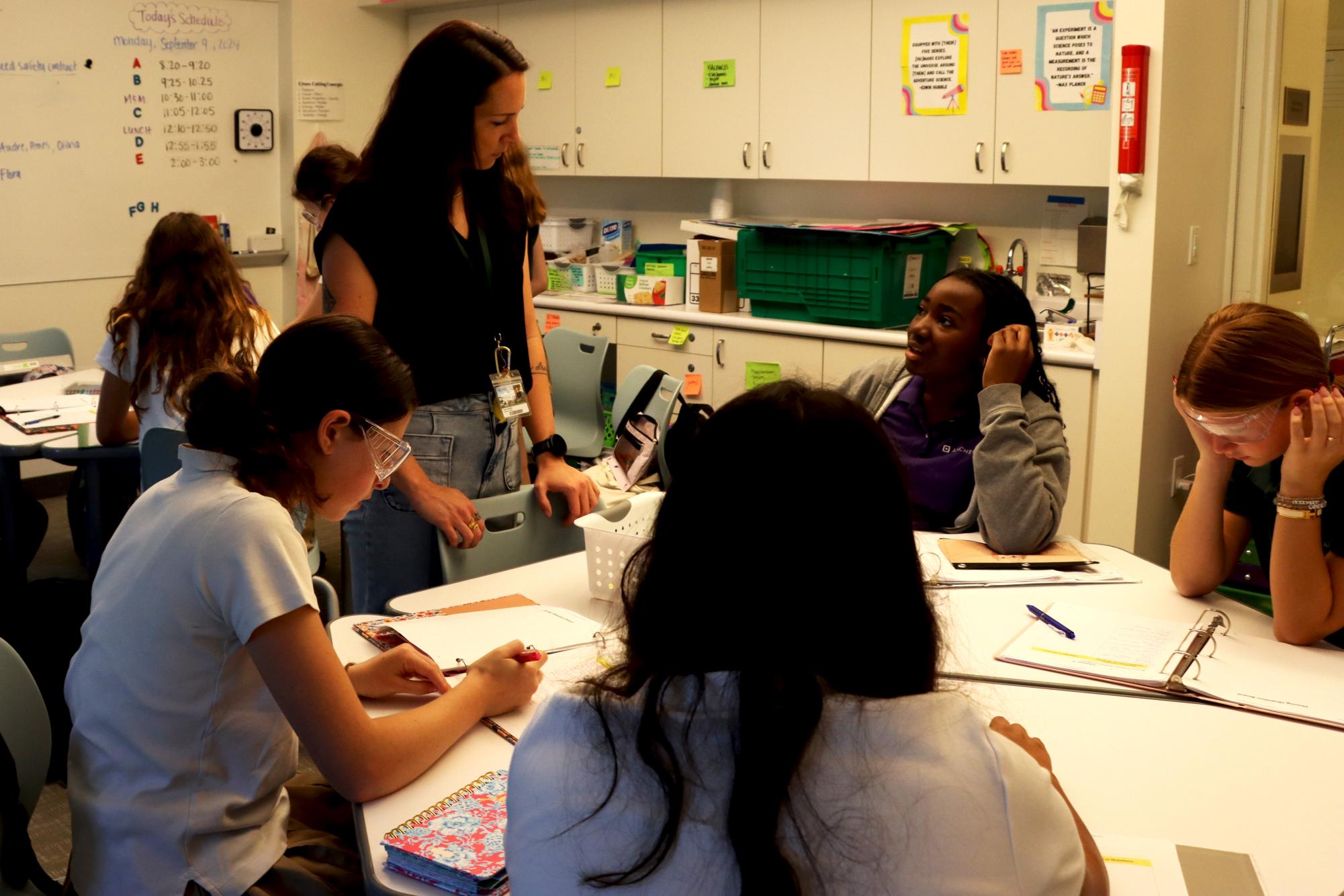
Growing up, Alyssa Worbetz wanted to be an astronaut, veterinarian or teacher. Ultimately, she chose the latter.
Before coming to Archer, Worbetz worked in a public charter school in New Jersey. Eight years ago, she moved to California and began teaching at an all-girls school.
“Growing up as someone who was interested in science, I already knew that there were some differences between boys and girls in science and their motivation,” Worbetz said. “Then, when I got to college I was able to do my thesis on coeducational classrooms versus single-sex classrooms and girls’ motivation, specifically in the physical sciences.”
Through her research, Worbetz saw a clear increase in young girls’ motivation, when there were no boys in the classroom.
“It really inspired me to make sure that I was paying attention to the girls in my classroom when I had a coeducational classroom like in a public school,” Worbetz said. “I knew the benefits of girls’ education, especially in science, and in the physical sciences in particular, and that’s really important to me.”
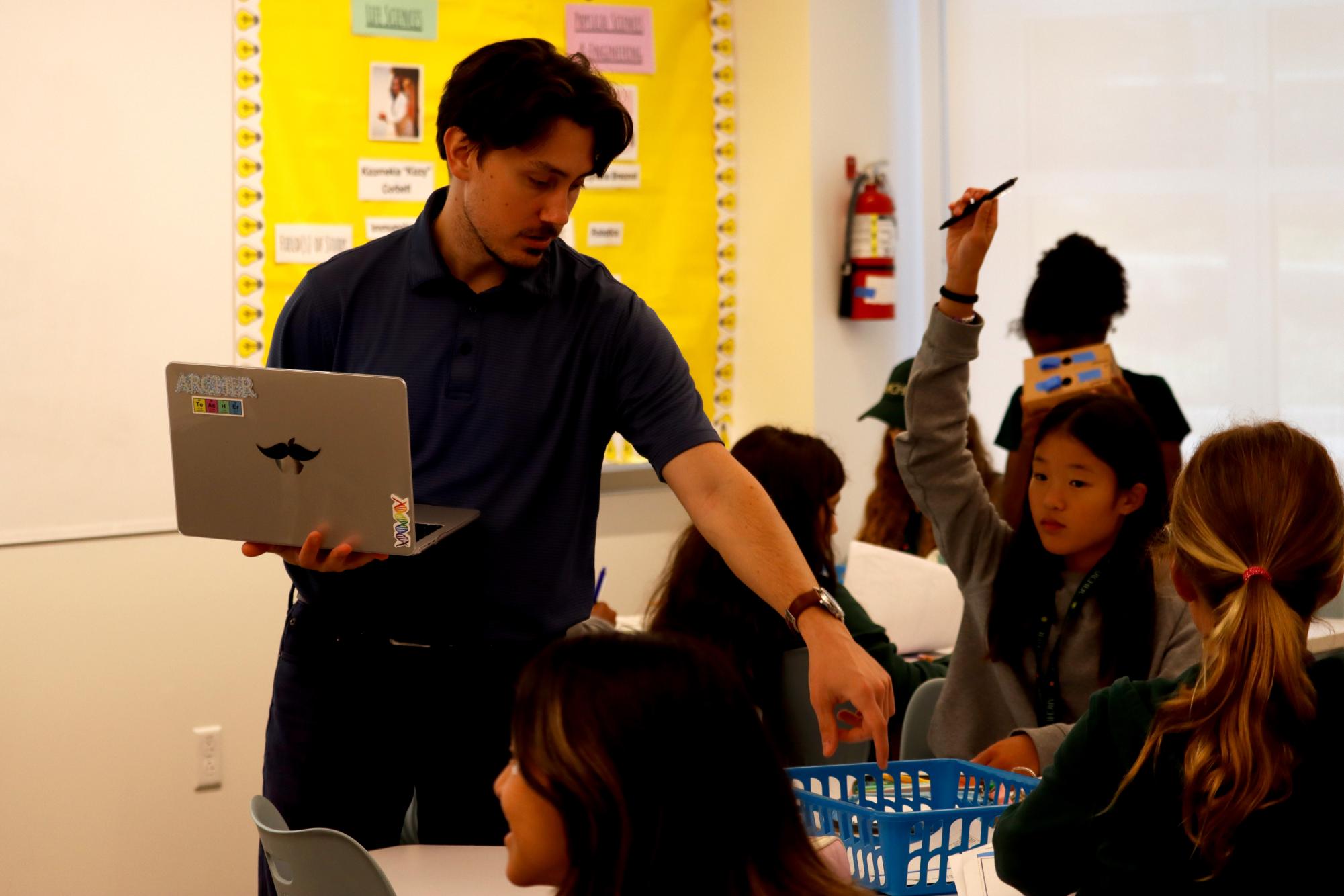
Before becoming a teacher, Charlie Watts worked as an app developer. Watts taught coding during the pandemic, which is when he “fell in love” with the profession.
“I’ve always been a ‘STEM head.’ My degree is not in a hard science, but I did work in the STEM field,” Watts said. “I still think that my experiences in engineering and design principles are applicable to the broader STEM curriculum.”
While in high school, Watts had friends who went to Archer and said he heard great things about the school. So, when he saw an opening for a science middle school teacher, he decided to apply for the position. He said one of the reasons he loves the school is because of the student and faculty dynamics.
“I feel like, especially staff and faculty, really embody that honor code and present it to the students,” Watts said. “I think it just makes this cohesive unit that really gels and works together, whether you go inside or outside of the classroom.”
One memory that stands out to Watts from earlier in the year was during his class’s science safety lesson. He positioned skeleton doing everything students should not do during labs as a creative way to teach them lab safety. He noted that many of his colleagues walked by to take pictures with the skeleton.
“That really put a smile on my face. I’ve never had an experience like that, just having teachers pop in,” Watts said. “While that was going on, students were still attentive and doing the assignment — it was cool for me to see.”


